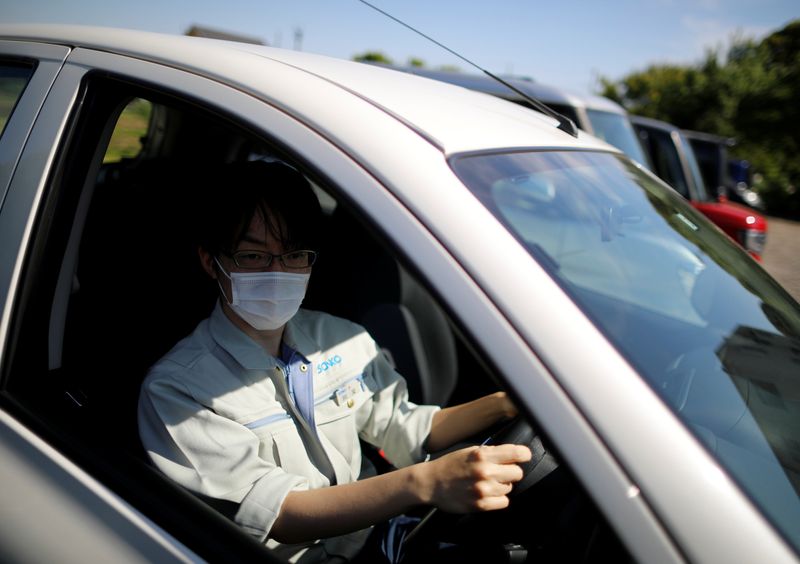By Maki Shiraki
TOKYO (Reuters) - Ryota Kawamata hadn't driven for more than a decade, but as Japan's COVID-19 crisis worsened in May, his employer near Tokyo rented him a car so he wouldn't have to use public transport.
The 32-year old engineer, a self-described "poor driver", now wants to buy his own car.
"There are places where I can't go without a car," said Kawamata, who recently paid 30,000 yen ($280) for a five-hour refresher course to hone his driving skills.
As Japan emerges from its coronavirus lockdown, restaurants and offices are practicing social distancing, but public transport doesn't require it. People like Kawamata, known as "paper drivers" because they have a licence but don't own vehicles, are an untapped pool of potential car buyers.
They could give Toyota Motor Corp (T:7203), Nissan (OTC:NSANY) Motor Co Ltd (T:7201) and others a small but much-needed boost amid a global slump in car-buying.
Demand from lapsed drivers elsewhere, such as the United States, China and other countries where social distancing has become the norm, could also help soften the coronavirus blow for car makers.
There are no statistics about the number of such drivers in Japan, but about 45 million people have gold-class driving licences, issued to people with no traffic violations for at least five years, according to Japan's National Police Agency. Many of those drivers have simply not been on the road.
Akitake Sawamura, who manages a driving school that offers refresher courses to inexperienced drivers, estimates that around two-thirds of gold licence holders are paper drivers, who have become more numerous over the years as more Japanese use public transit.
Over the past three decades, car sales in Japan have fallen from a peak of 7.8 million vehicles in 1990 to 5.2 million last year.
"There's been a pick-up in people attending courses since the emergency was declared in April," Sawamura said. Recent students, he said, have included a healthcare worker treating COVID-19 cases and an office worker who moved out of Tokyo and bought a car to get around his new town after he began telecommuting.
In a sign that the roads may be more crowded, demand for parking, particularly in central Tokyo, has increased during the coronavirus crisis, according to Akippa, a smartphone service that searches for parking spaces.
Demand for spaces more than doubled nationwide and jumped by five times in parts of Japan's capital during the state of emergency declared in April compared with February, before the coronavirus crisis took hold, according to Akippa spokeswoman Ayako Ishikawa.
"People are still commuting to work by car and they have been joined by others since the emergency ended," Ishikawa said.
The government has noticed the increase in drivers but says it is not concerned about congestion or other issues.
"The number of vehicles on the roads is currently less than it was before the coronavirus pandemic began. Going forward there will likely be some impact," said a roads bureau official at the Ministry of Land, Infrastructure, Transport and Tourism. "We don't yet know what that balance will be between new drivers and those not travelling because of teleworking."
Among the people returning to the road is Kawamata's co-worker, Keisuke Kai, 25, who also drives a rented car to work. He enjoys the convenience, but says he is "hesitant" about buying a car because of the cost, including parking fees.
Dealerships in and around Tokyo hope paper drivers will eventually take that step.
"We would welcome any increase in the number of drivers on the road," a salesman at a Toyota dealership told Reuters.
